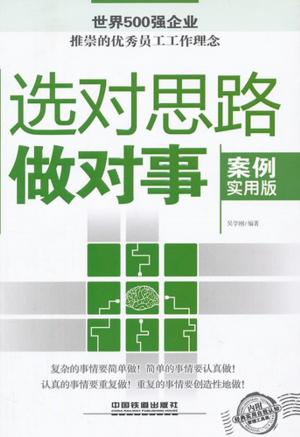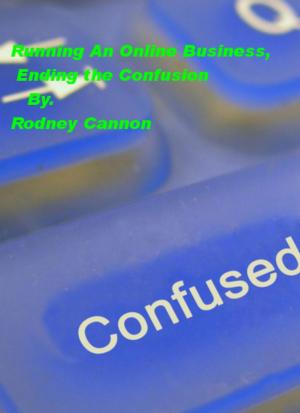| Author: | Joe Robinson | ISBN: | 9781301365050 |
| Publisher: | Joe Robinson | Publication: | February 15, 2013 |
| Imprint: | Smashwords Edition | Language: | English |
| Author: | Joe Robinson |
| ISBN: | 9781301365050 |
| Publisher: | Joe Robinson |
| Publication: | February 15, 2013 |
| Imprint: | Smashwords Edition |
| Language: | English |
The Seeds of Hope is a stream of consciousness song of thanksgiving. In the work author Joe Robinson expresses his gratitude for all the experiences of his life. In the process he reveals the source of his joy: namely, the people God has placed in his path.
Robinson dedicates this book to his family, writing: “I am a product of my surroundings. I appreciate in a deep manner the help you have given me as I walk through the journey of life. I strive to do good things with such wonderful gifts put on my plate. Once again, thank you.” From here the author moves into a state of meditation, as he muses upon his life and explains the reason for his happiness.
Among other things, at this moment in his life the author is extremely grateful for his children. Joe and his wife have made it their mission to adopt children who have been abandoned by Chinese families. “We have just returned from China,” he writes, “and the successful mission of adopting our second little girl from this country. My heart is full and that is perhaps the reason to start writing this book.” The Robinson’s foster an atmosphere of positivity and acceptance in their household. Focusing on the life enriching experiences of community-living and education (and not allowing themselves to be lost in the culturally vacuous vocations of many Americans), the children learn that human interaction is far more rewarding than wasting time on an ipad or in front of a television.
In this autobiographical work the author chronicles the life events that have shaped him as a human being. Composed of two sections, and written in a somewhat scattershot manner, the author does not attempt to narrate his personal history in a chronological storyline. Rather, he mentally travels from one stage of his life to another freely, touching upon a broad array of experiences and relationships. It is a style of writing that mirrors his non-conventional approach to life.
Robinson states: “These are my thoughts. They are evolving with every twist and turn in the road. My perspective is allowed to roam freely. It quickly becomes a hodgepodge of thought for me at this point. It is difficult to put thoughts in a certain order.” Robinson writes as if he cannot contain his joy or the thoughts that naturally spring to his mind. His prose reflects the excitement he feels at this moment in time; and also his positive perspective. In this way The Seeds of Hope proves to be a window through which the reader can view the raw emotions—and pure exhilaration—flowing from the author’s heart into the world.
The author concludes the work with this thought: “It really is amazing what humans may accomplish when they come together in common purpose in a kind and understanding manner.” More than anything, this book is a testament to the power of an optimistic mindset. It is an optimism that has overcome great obstacles, including a near death experience and countless family illnesses. With the work, the author inspires others to rise above adversity; and to actualize their inherent potential for personal growth and communal living on earth.
The positivity and sense of gratitude conveyed in the book is contagious. And in reading The Seeds of Hope one may come away with a fresh perspective regarding the life-possibilities that exist in the world and each living soul.
Christopher Ackerman
The Seeds of Hope is a stream of consciousness song of thanksgiving. In the work author Joe Robinson expresses his gratitude for all the experiences of his life. In the process he reveals the source of his joy: namely, the people God has placed in his path.
Robinson dedicates this book to his family, writing: “I am a product of my surroundings. I appreciate in a deep manner the help you have given me as I walk through the journey of life. I strive to do good things with such wonderful gifts put on my plate. Once again, thank you.” From here the author moves into a state of meditation, as he muses upon his life and explains the reason for his happiness.
Among other things, at this moment in his life the author is extremely grateful for his children. Joe and his wife have made it their mission to adopt children who have been abandoned by Chinese families. “We have just returned from China,” he writes, “and the successful mission of adopting our second little girl from this country. My heart is full and that is perhaps the reason to start writing this book.” The Robinson’s foster an atmosphere of positivity and acceptance in their household. Focusing on the life enriching experiences of community-living and education (and not allowing themselves to be lost in the culturally vacuous vocations of many Americans), the children learn that human interaction is far more rewarding than wasting time on an ipad or in front of a television.
In this autobiographical work the author chronicles the life events that have shaped him as a human being. Composed of two sections, and written in a somewhat scattershot manner, the author does not attempt to narrate his personal history in a chronological storyline. Rather, he mentally travels from one stage of his life to another freely, touching upon a broad array of experiences and relationships. It is a style of writing that mirrors his non-conventional approach to life.
Robinson states: “These are my thoughts. They are evolving with every twist and turn in the road. My perspective is allowed to roam freely. It quickly becomes a hodgepodge of thought for me at this point. It is difficult to put thoughts in a certain order.” Robinson writes as if he cannot contain his joy or the thoughts that naturally spring to his mind. His prose reflects the excitement he feels at this moment in time; and also his positive perspective. In this way The Seeds of Hope proves to be a window through which the reader can view the raw emotions—and pure exhilaration—flowing from the author’s heart into the world.
The author concludes the work with this thought: “It really is amazing what humans may accomplish when they come together in common purpose in a kind and understanding manner.” More than anything, this book is a testament to the power of an optimistic mindset. It is an optimism that has overcome great obstacles, including a near death experience and countless family illnesses. With the work, the author inspires others to rise above adversity; and to actualize their inherent potential for personal growth and communal living on earth.
The positivity and sense of gratitude conveyed in the book is contagious. And in reading The Seeds of Hope one may come away with a fresh perspective regarding the life-possibilities that exist in the world and each living soul.
Christopher Ackerman















